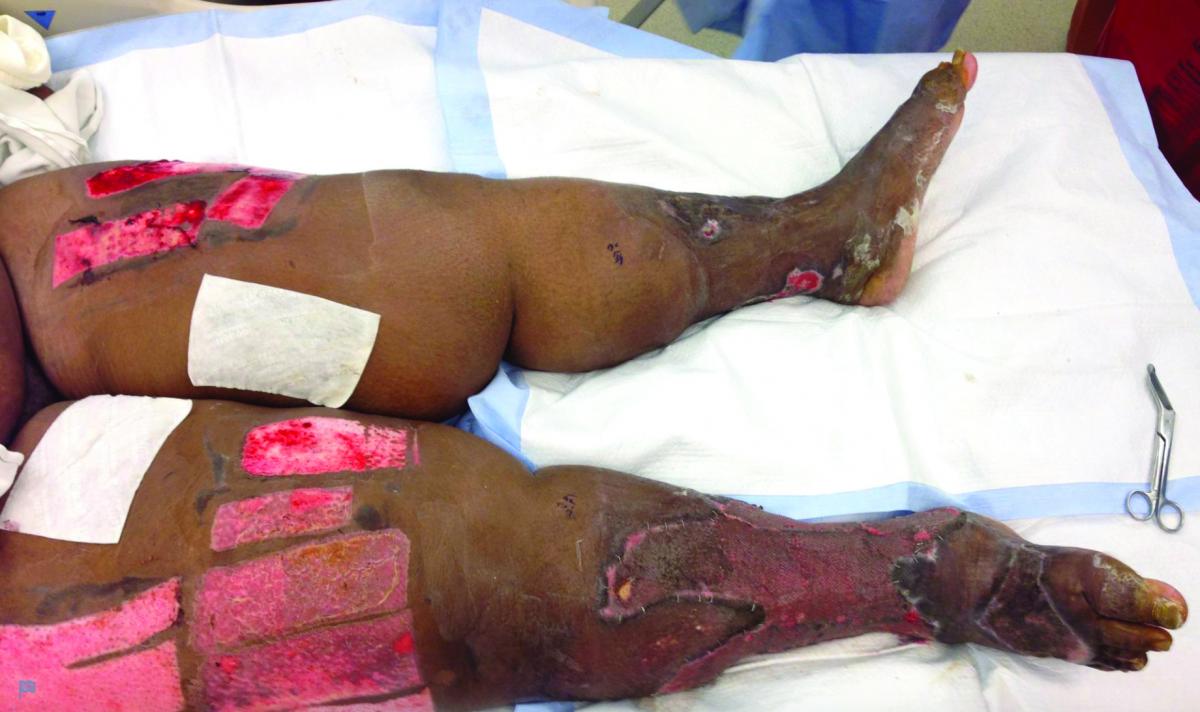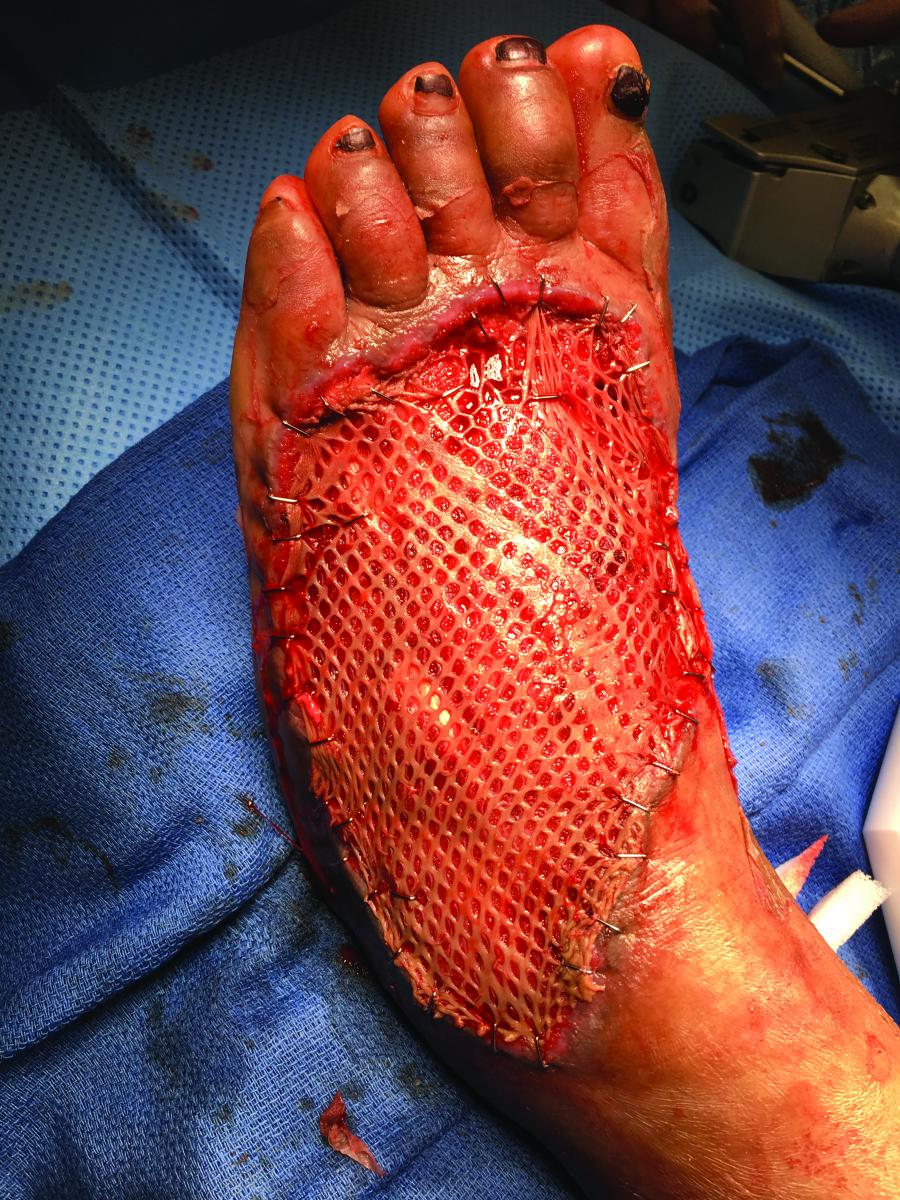Educating Patients On The Role Of Nutrition In Wound Healing
Focusing on the importance of how a diet rich in nutrients can benefit wound healing, these panelists discuss broaching nutrition topics with their patients and how to treat morbidly obese patients with lower extremity wounds.
Q:
Do you ask your wound care patients about their diet?
A:
 Kazu Suzuki, DPM, CWS, will ask patients about their diets, especially patients with chronic wounds that are supposedly “non-healing.” Although many things can be impediments to wound healing, he questions patients if poor nutrition could be one of the culprits. Dr. Suzuki will ask patients about their appetite and general diet of what they eat in a day, especially new patients with chronic wounds.
Kazu Suzuki, DPM, CWS, will ask patients about their diets, especially patients with chronic wounds that are supposedly “non-healing.” Although many things can be impediments to wound healing, he questions patients if poor nutrition could be one of the culprits. Dr. Suzuki will ask patients about their appetite and general diet of what they eat in a day, especially new patients with chronic wounds.
For patients who have infection or gangrene in acute wounds, Lee C. Rogers, DPM, says often such patients’ blood glucose is uncontrolled as part of the infectious process.
“Their nutrition takes a secondary priority to their more acute and urgent problem,” says Dr. Rogers. “But once a patient is stabilized and the wound healing process starts, involving a nutritionist can be helpful, not only for wound healing, but for the patient’s general health as well.”
Christopher Winters, DPM, routinely first asks patients about their nutrition to get a feel for their diets. He will always check patients’ protein, albumin and prealbumin levels, and will recommend a multivitamin. If he sees that a patient’s lab values are low or that the patient is overweight or underweight, Dr. Winters will refer the patient to either a nutritionist or diabetes educator.
Q:
Do you try to actively intervene when it comes to a patient’s diet?
A:
In regard to patient diets, Dr. Winters will intervene as much as possible. He will often ask who is cooking the patient’s meals and will interview the spouse or significant other regarding the preparation of meals. Occasionally, he has set up Meals on Wheels to provide meals to a patient’s home.
While Dr. Suzuki does broach the topic of diet with his patients, he says there is a “delicate nature” to such conversations. He notes that what patients eat can be a personal thing and may be based on each person’s tradition and upbringing. Dr. Suzuki explains that diet is one of those habits that patients cannot change quickly unless they are very motivated on why they should modify or often drastically overhaul their diet.
 Dr. Suzuki will determine a goal for each of his wound patients. As he notes, some patients desperately need to lose weight as their abdominal obesity is contributing to leg edema and chronic venous leg open wounds. In contrast, some of his other patients may not be getting enough calories and protein to combat the loss of lean body mass (sarcopenia) that naturally happens with aging. Dr. Suzuki says sarcopenia leads to poor wound healing because a patient’s body cannot maintain muscle mass and skin regeneration at the same time. He recommends the supplement HMB (calcium beta-hydroxy beta-methylbutyrate monohydrate), often used by body builders, which can help patients retain lean body muscle mass. Dr. Suzuki says HMB is part of some nutritional supplements, such as Juven and Ensure (both Abbott Laboratories).
Dr. Suzuki will determine a goal for each of his wound patients. As he notes, some patients desperately need to lose weight as their abdominal obesity is contributing to leg edema and chronic venous leg open wounds. In contrast, some of his other patients may not be getting enough calories and protein to combat the loss of lean body mass (sarcopenia) that naturally happens with aging. Dr. Suzuki says sarcopenia leads to poor wound healing because a patient’s body cannot maintain muscle mass and skin regeneration at the same time. He recommends the supplement HMB (calcium beta-hydroxy beta-methylbutyrate monohydrate), often used by body builders, which can help patients retain lean body muscle mass. Dr. Suzuki says HMB is part of some nutritional supplements, such as Juven and Ensure (both Abbott Laboratories).
Dr. Rogers laments that doctors have little time to deeply counsel patients on their nutrition aside from a few dietary recommendations that most patients soon forget. The best intervention, notes Dr. Rogers, is utilizing the services of a nutritionist or dietitian. He adds that some distance-based services, like Nutritional Healing, provide evaluation, counseling and follow-up by phone, and are covered by Medicare and some other insurance companies. He says such nutrition services also send their recommendations to the doctor.
Dr. Rogers also recommends considering Juven, a nutritional supplement containing amino acids, vitamins and antioxidants. He cites a randomized controlled trial showing the benefits of Juven in wound healing in a study of 35 patients with diabetes over the age of 70.1
Q:
What do you do for morbidly obese patients with wounds?
A:
At his institution, Dr. Suzuki and his colleagues often make referrals to a bariatric clinic where patients can receive counseling from a bariatric surgeon and specialized nutritionists. Dr. Winters also has referred patients to his hospital’s bariatric surgery program. Aside from discussing weight loss and having patients discuss weight loss options, including pharmacotherapy, with their primary care physicians, Dr. Winters says the other option would be referral to a nutritionist.
As many obese patients suffer from swollen leg and venous leg ulcers, Dr. Suzuki encourages them that losing even five to 10 pounds will make a difference, and he says “it really does.” As diet is a very personal “habit” from many years of eating, Dr. Suzuki cautions it is not easy for patients to change their diet unless they are motivated.
Dr. Rogers points out that counterintuitively, obese patients may be undernourished. He notes that many morbidly obese patients have diets with high caloric intake but little nutritional value. Dr. Rogers suggests involving an expert assessment of nutrition and weight loss. He adds that offloading requires special considerations in morbidly obese patients.
“I also warn other clinicians to ‘tread lightly’ when they talk about the patients’ weight as it is obviously a touchy subject for overweight patients,” says Dr. Suzuki. “I have had a few patients who got up and stormed out of the exam room when I suggested ‘weight loss’ as a part of comprehensive treatment plans.”
Dr. Rogers is the Medical Director of the Amputation Prevention Centers of America, a national network of limb salvage centers. He is also responsible for quality assurance and performance improvement on diabetic foot ulcers at RestorixHealth.
Dr. Winters is affiliated with the American Health Network in the Indianapolis area and many hospitals in Indiana. He is board-certified in wound care by the Council for Medical Education and Testing, and is board-certified in the prevention and treatment of diabetic foot wounds and footwear by the American Board of Multiple Specialties in Podiatry.
Dr. Suzuki is the Medical Director of the Tower Wound Care Centers at the Cedars-Sinai Medical Towers. He is also on the medical staff of the Cedars-Sinai Medical Center in Los Angeles and is a Visiting Professor at the Tokyo Medical and Dental University in Tokyo. He can be reached at Kazu.Suzuki@cshs.org.
Reference
1. Williams JZ, Abumrad N, Barbul A. Effect of a specialized amino acid mixture on human collagen disposition. Ann Surg. 2002; 236(3):369–74.
For further reading, see “Current Perspectives On Nutrition And Wound Healing” in the May 2017 issue of Podiatry Today.











